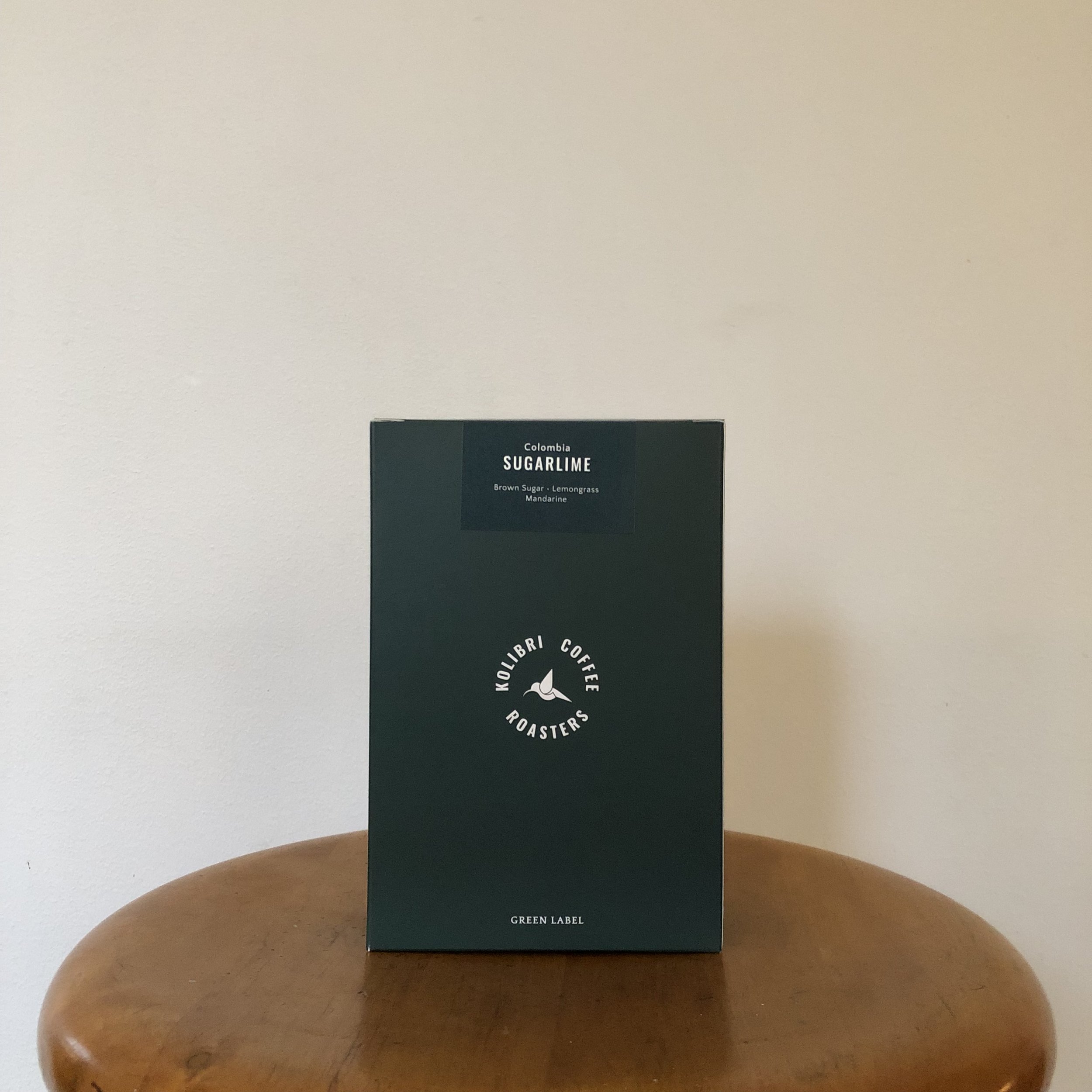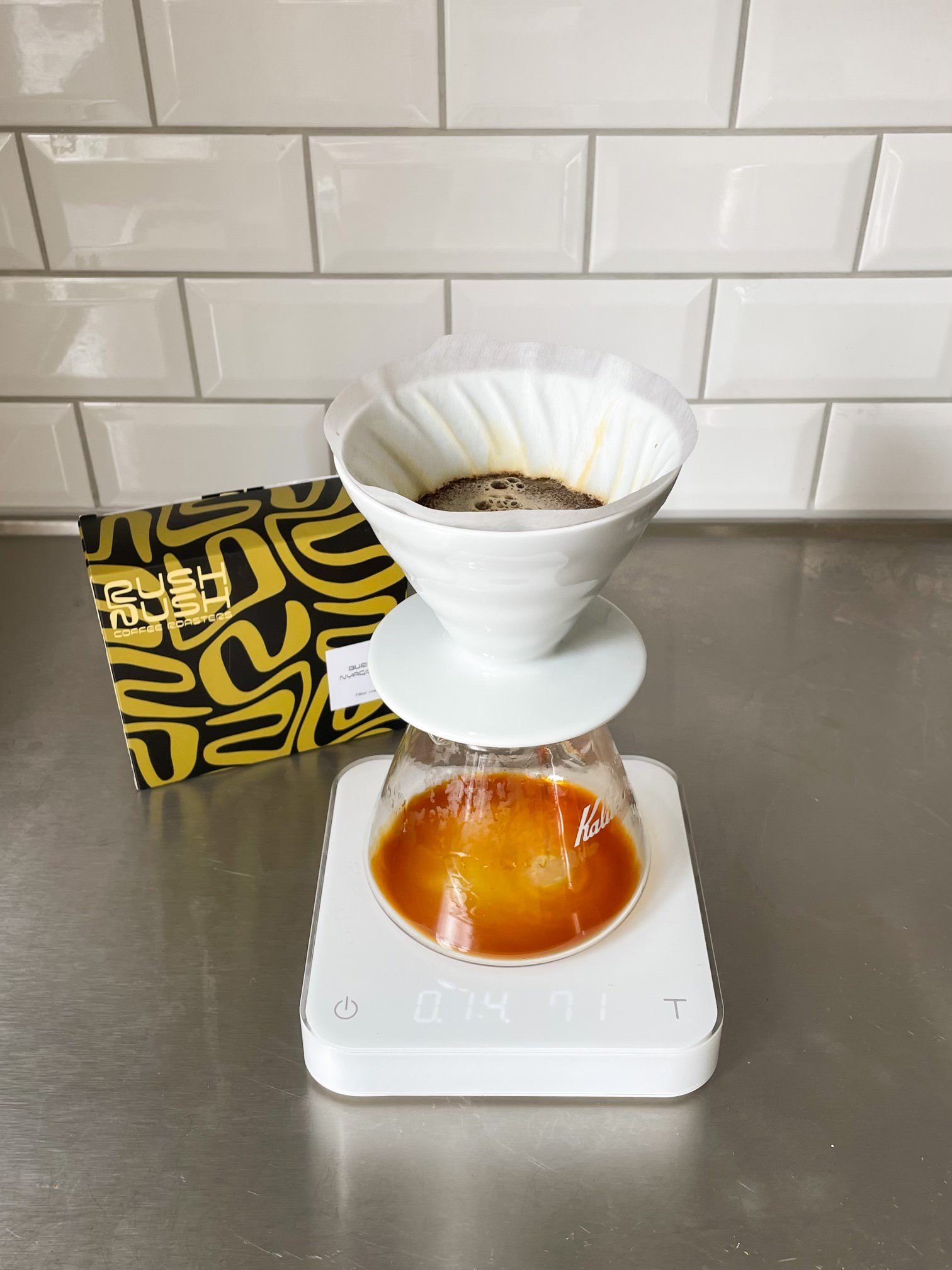This month, we take you on a journey to the Netherlands, where Stephany & Darius started their roastery a few years back. Kolibri works their magic to roast some of the finest coffees. We're thrilled to bring them to you this month. Enjoy!
CHEPSANGOR
Origin: Kenya
Process: Washed
Tasting notes: Tangerine & Mango
Dr. Rosebella is a dedicated advocate for female farmers in her community, striving to offer them sustainable alternatives beyond charcoal production, which harms health and the environment. She distributed seedlings to women in her group, providing training and technical support to enhance their farming practices. Women meticulously select ripe cherries for processing, ensuring parchment perfection while sun- drying. With eco-pulper machine, Chepsangor producers can flexibly employ various processing methods.
Sugarlime
Origin: Colombia
Process: Washed
Tasting notes: Lemongrass & Mandarine
This is a geisha from La Palma Farm in Santa Barbara, Colombia. Grown in the Andes, particularly the Antioquia region, this geisha benefits from ideal conditions – a unique microclimate, rich volcanic soil, and high elevations. Its prolonged fermentation-washed processing accentuates its floral and elegant notes like Brown Sugar, Lemongrass, and Mandarine in a filter roast. La Palma employs selective hand harvesting and a unique fermentation method to produce high- quality coffee. The beans are fully washed and dried in silos for an even and optimal humidity.
Gardenia
Origin: Guatemala
Process: Natural
Tasting notes: Hibiscus & Marzipan
Gardenia farm is located high in the mountains in a a vibrant native forest, where preserving nature is at the heart of the farm’s operations. In addition to sustainability, coffee quality is a key priority. By carefully monitoring every stage of the process, they are able to produce outstanding quality coffees, working with exotic varieties in order to showcase the unique potential of the region’s coffee. The cherries are placed on the patio to begin drying about four hours on average after harvest and workers turn the coffee every hour to ensure thorough and even drying.
Explore our next roaster with us!


















